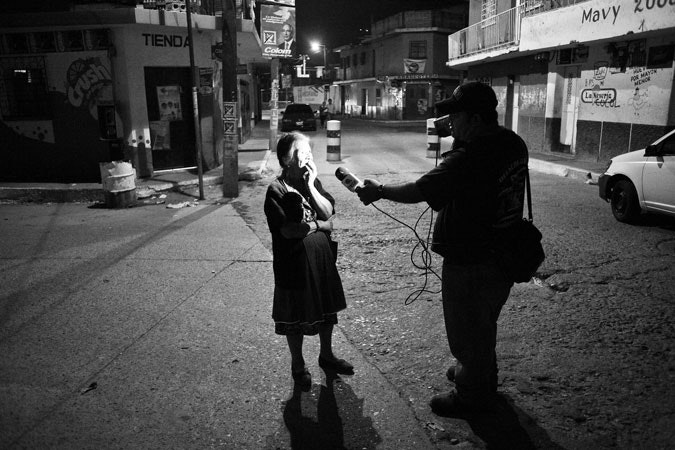What Is Happening to Our Media?
By Rasmus Kleis Nielsen

Across the Western world, barely a month passes without more bad news for journalism and the commercial news media that have historically sustained the journalistic profession and its role in democracy. Newspapers and commercial broadcasters are boom businesses in emerging markets like Brazil and India, but in the old, affluent democracies, news journalism increasingly looks like a sunset industry. Paid print newspaper circulation is declining and while millions visit newspaper websites, few titles have succeeded in making money online. Advertising revenues are down or at best stagnant for much of the news industry, as companies cut their budgets in response to the economic slump or move their ads to search engines like Google or social networking sites like Facebook. Television broadcasters are generally holding their own financially but often cutting back on their investment in journalism as they compete for audiences who tend to prefer entertainment over news.
Even independent license-fee funded public service broadcasting, often seen as a stable safe haven for quality reporting in an uncertain media environment, is now under pressure—financially from governments in a time of austerity, politically from free-market forces and commercial media industry lobbies frustrated by increased competition on digital platforms, and in some countries from public outrage provoked by appalling editorial errors, as in the McAlpine scandal over spurious allegations of child abuse that recently brought down the newly-appointed BBC General Director George Entwistle.
The consequences are, as I’ve argued in my recently published report "Ten Years that Shook the Media World", likely to be profound—not only for the industry, but also for democracy. For all its many shortcomings, professionally produced journalism has been the most important, the most widely used, and the most independent source of information about public affairs for most citizens in most democracies, but its ability to play this role in the future is now in doubt.
The twenty-first century was supposed to be a golden age for journalism, a time of more accurate, easily accessible, transparent, and communally connected reporting leveraging the affordances of new digital and networked technologies and the resources of “the people formerly known as the audience” in pursuit of the public interest. In some ways, these predictions have come true—the best journalism today is arguably better than it has ever been, linking to original sources, available across many different widely used platforms, open to comments and criticism from readers, and engaged in an ongoing conversation and collaboration with a wider range of actors than ever before.
And yet in many Western countries, the most basic precondition for good journalism, that there are journalists out there to do it, seems endangered. The combination of a cyclical downturn—the biggest economic crisis since the 1930s—and a structural shift in how we communicate—the rise and rapid spread of first the internet and then personal and portable mobile media—has challenged the legacy of commercial news media organizations that continue to produce and disseminate the most professionally produced news content in most democracies. In places as different as Finland, the United Kingdom, and the United States, newspaper companies currently employ two-thirds or more of all professional journalists. In all these countries, newspaper companies are cutting their costs and laying off reporters to balance declining revenues.
Journalism has, for good and for bad, been integral to popular government for at least a century. Today, the institutions that make it possible are changing rapidly. Newspaper companies across the Western world are struggling to adjust to a new media environment, and commercial broadcasters know that they too will have to face the digital transition. There are important differences from country to country in terms of how well each industry has been able to handle the challenges at hand, but the overall democratic challenge is a shared, dual one—how to fund professional journalism in the future, and how to ensure it manages to remain relevant in an ever more competitive media environment with thousands and thousands of offerings competing for our attention?
In emerging economies like Brazil and India, traditional elite-oriented newspaper companies face some of the same problems their counterparts in more affluent democracies struggle with, even as an increasing number of popular newspapers grow by catering to the expanding salaried lower middle classes and benefit from the combination of economic growth, increased literacy, and limited internet access. In this context, news is reaching more and more people as more and more commercial media cater to a broader and more diverse audience, and journalism is not existentially threatened even as questions of quality and independence often remain unresolved.
But in most affluent democracies, both popular and elite news media are struggling to adjust to a new communication environment. The trends today points toward a future in which there are fewer large media audiences gathered around a shared news agenda and more niche ones oriented towards their own interest, towards a further erosion of the will and ability of commercial media companies to underwrite general interest news journalism, and as a consequence towards a continually growing gulf between the few who will in all likelihood be more informed than ever before (as users of various premium news products) and the many who will find less and less news produced for them.
This development points towards a different, and less equal, twenty-first century democracy than the one most Western countries aspired to in the second half of the twentieth century. It represents one of the great social and political issues of our time, and a massive challenge for journalists, news industry professionals, policymakers, and media reform activists interested in shaping the future of the media. It will profoundly change not only journalism and the news industry, but also democracy.
Rasmus Kleis Nielsen is assistant professor of political communication at Roskilde University in Denmark and research fellow at the Reuters Institute for the Study of Journalism at the University of Oxford.


